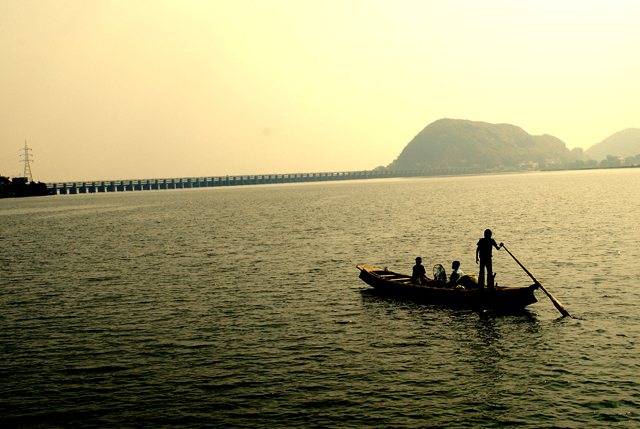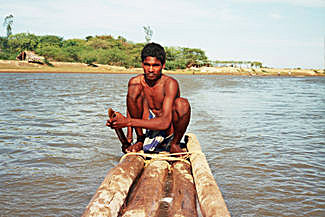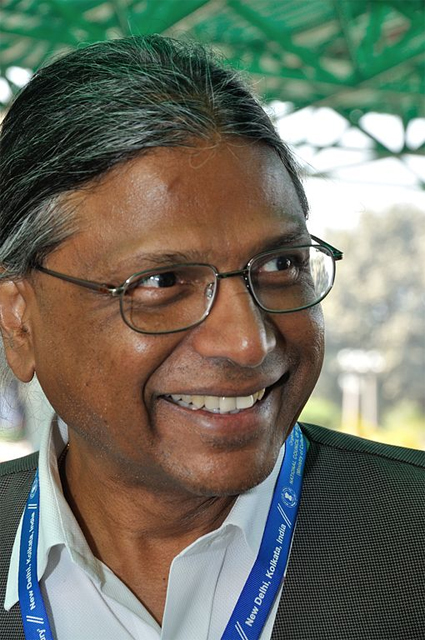When the government of India split a new state named Telangana off from the older state of Andhra Pradesh in 2014, the capital of the much reduced state had to be moved. The capital of Andhra Pradesh had been the city of Hyderabad but that metropolis was located in Telangana and would remain its capital. Andhra Pradesh decided to build its new capital, Amaravati, between the small, historic town of Amaravathi and the much larger city of Vijayawada.

With Andhra Pradesh concentrating on developing the infrastructure for its new capital city, located on the south side of a sweeping bend in the Krishna River, The Hindu last week focused a news story on a group of Yanadi who live on or near the south bank of the river in the old town. The issue is that they lack a sufficient supply of clean water.
The reporter interviewed Ganga Raju, a Yanadi man squatting on a rock at the edge of the river near the point where sewage from Amaravathi empties into it. As he dips his 20-liter can into the froth produced by the waste water, he tells The Hindu that he collects his drinking water there every day and so far he has not caught any diseases from it. He earns money—200 to 300 rupees (US$2.80 to $4.20) per day—as a rag picker.

Mr. Raju joins 11 other Yanadi to walk back to their colony, where 78 families have settled in order to have access to pools of water along the edge of the river. Four families have resettled right onto the bank of the river, called a ghat, in order to be closer to the water. The water level in the river has been lower ever since a dam was built up river at Pulichintala for flood control, irrigation, and hydro power generation. Mr. Raju claims that the process of filling the new reservoir has lowered the level of water available for the Yanadi.
Ramnamma, a Yanadi woman who is also collecting water from the river, tells the reporter that a tanker truck brings water to the community only once a week. She says that the amount of water available is quite insufficient to meet the needs of the families, so the competition for it often leads to conflicts.
However, an official from the Amaravathi panchayat tells the reporter that a 4,000 liter tanker supplies water daily to the Yanadi colony at Chiru Poramboke. Because it is located in a wetland, however, the government cannot lay pipes for water. But he said the town has provided electric lines into the community.

“Water is a cultural and human right,” the Chief Curator of the Amaravathi Heritage Centre and Museum, Amareswar Galla, tells The Hindu. He adds, “the three tribal communities, Chenchu, Yerukala and Yanadi, struggle for access to water and a decent livelihood. Anybody drinking putrid water is a shame on all of us.”